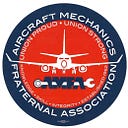Alaska Airlines Risking Employee and Passenger Health with Conflicting Policies
Like many of their passengers, Alaska Airlines seems to be growing weary of Covid-19. Recently, Alaska Airlines began enforcing an ambiguous attendance policy in a manner never before seen — one that includes discipline for the use of accrued sick leave and lower thresholds for counseling or discipline than before the pandemic. Strangely enough, the new enforcement policy was put into action at the peak of the pandemic’s surge. This change in enforcement policy occurred while another special Covid policy mandating workers to stay home if they have Covid symptoms or were possibly exposed to the virus was in effect, coinciding with the CDC’s prevention steps and guidelines. The new draconian attendance policy enforcement is in direct conflict with the special policies instituted at the onset of the pandemic to provide additional protection and safety during these unprecedented times.
According to the collective bargaining agreement, union employees are entitled to six occurrences of sick days per year, no questions asked. Management, in violation of the contract, changed this policy so that employees are now counseled for three occurrences and disciplined for four occurrences. Neither the union nor the employees were given an explanation for this change in enforcement. To make matters worse, the management at Alaska Airlines has made it difficult for workers to monitor their sick/late occurrences, telling employees it is their responsibility to track their own sick days. This shift in enforcement, beyond being a contract violation and safety risk, is in conflict with the special Covid program policies designed to protect employees and prevent outbreaks during the pandemic, otherwise known as ACES.
ACES — AAG (Alaska Air Group) Covid-19 Employee Safety — was implemented at the onset of the Covid-19 pandemic in March of 2020. An ACES playbook was published and distributed to employees so they would be aware of the new protocols being implemented to protect them and their fellow co-workers during this challenging time. A cornerstone of this program is that employees must attest before entering the workplace that 1) they do not have any Covid-19 symptoms (as identified in a comprehensive list of symptoms) and, 2) they have not had exposure to someone testing positive for Covid-19 or exhibiting any symptoms of Covid-19.
Employees are confused. On the one hand, they fear losing pay, or even their jobs, for legitimate use of accrued sick leave, but on the other hand, company policy prohibits anyone exhibiting very general symptoms of Covid-19 (many of which people experience on a routine basis unrelated to Covid) from entering the workplace. This has put many employees between a rock and a hard place — do they call in sick and risk counseling or discipline, or do they come to work with symptoms and risk infecting their co-workers, and even passengers?
These actions by Alaska Airlines defy logic. The Covid-19 pandemic is the worst that it has been — more infections and deaths are being reported, and new and more contagious strains of the virus have reached our shores, sure to create another surge in infections and death. Confusing and conflicting policies related to employee health are not just unfair, they are extremely dangerous — dangerous to the hardworking people of Alaska Airlines and dangerous to the flying public they serve and interact with each day. AMFA — the union representing Alaska Airlines mechanics and related employees — has attempted to resolve this issue multiple times without any success. Now, AMFA is escalating this issue and will seek to remedy the situation through arbitration and whatever legal means necessary, to protect the safety of the hardworking people at Alaska Airlines and the safety of passengers who entrust Alaska Airlines with their lives.
